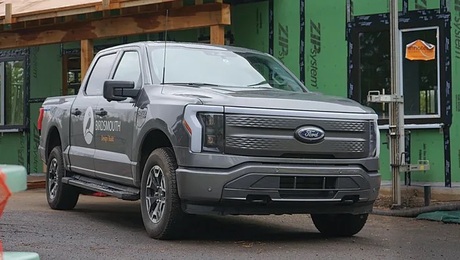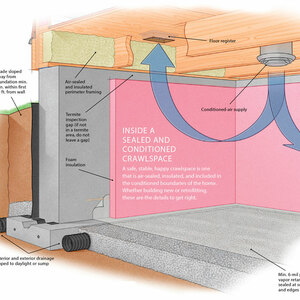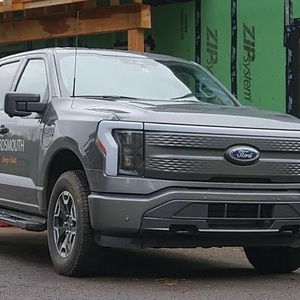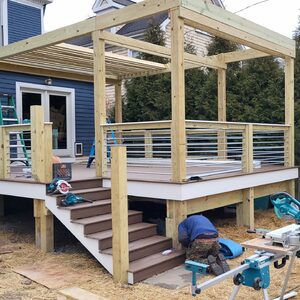We are getting a new SE panel 100A 127/240V AC 1 phase 50hz 3 wire and a ground. Existing 25A SE is not grounded. Entire yard is rock. How do you ground the system?
Discussion Forum
Discussion Forum
Up Next
Video Shorts
Featured Story

Ford Motor Company slashes prices for some F-150 Lightning models to stimulate demand for electric vehicles (EVs).
Featured Video
How to Install Exterior Window TrimHighlights
"I have learned so much thanks to the searchable articles on the FHB website. I can confidently say that I expect to be a life-long subscriber." - M.K.

















Replies
Ask the serving utility how they ground their transformers at the pad or pole, and ask the AHJ (building dept) what they want.
Options:
1. have a well driller punch a hole on the rock, 8 feet deep, and put in a ground rod. Fill annular space with sand, or better yet, grout or bentonite. Two rods (or more) would be advisable in this situation...
2. Create a Ufer ground (concrete-encased electrode). Either 20 feet of 1/2" (or bigger) rebar, or 20 feet of #4 solid bare copper wire in concrete with rebar or wire 2-4 inches off the bottom of the footing. The concrete sits on the rock. It'd be ideal if the rebar or #4 wire could go into the building footing.
There are other options, like a plate electrode.
You'llbenefit greatly if you pay for a consultation with a local electrical engineering/contracting company that designs and installs lightning rod systems. To find them, failing a yellow pages listing, talk to a local company that installs transmitting towers.
Good luck.
Cliff
If you've got some soil, just
If you've got some soil, just not very deep, you can bury the ground rods laying down. But it must be deep enough and in the right soil to remain moist, and the AHJ will have a say on that.
There are also ufer grounds (described above) and loop grounds -- a loop of copper wire buried surrounding the building. But you've basically got to work it out with the inspector.
What the other guys said. Your inspector will have the final say so don't get excited about one particular option. Call your building department and simply ask the electrical guy what options are normally suitable in your situation.
What the other guys said. Your inspector will have the final say so don't get excited about one particular option. Call your building department and simply ask the electrical guy what options are normally suitable in your situation.
You can have a contractor drill a hole using a compressor powered rock drill and 10' drill steel or rent the tow around compressor and rock drill locally and do it yourself. Once you have the hole drilled, grout the rod into the hole with an expanding grout such as Rockite or similar. I just did two myself and it took about two hours for the whole job, but I do own my own equipment.
Jess
Thanks guys,
I have a retiree from the local utility company who will advise me on the best way that will satisfy inspectors.